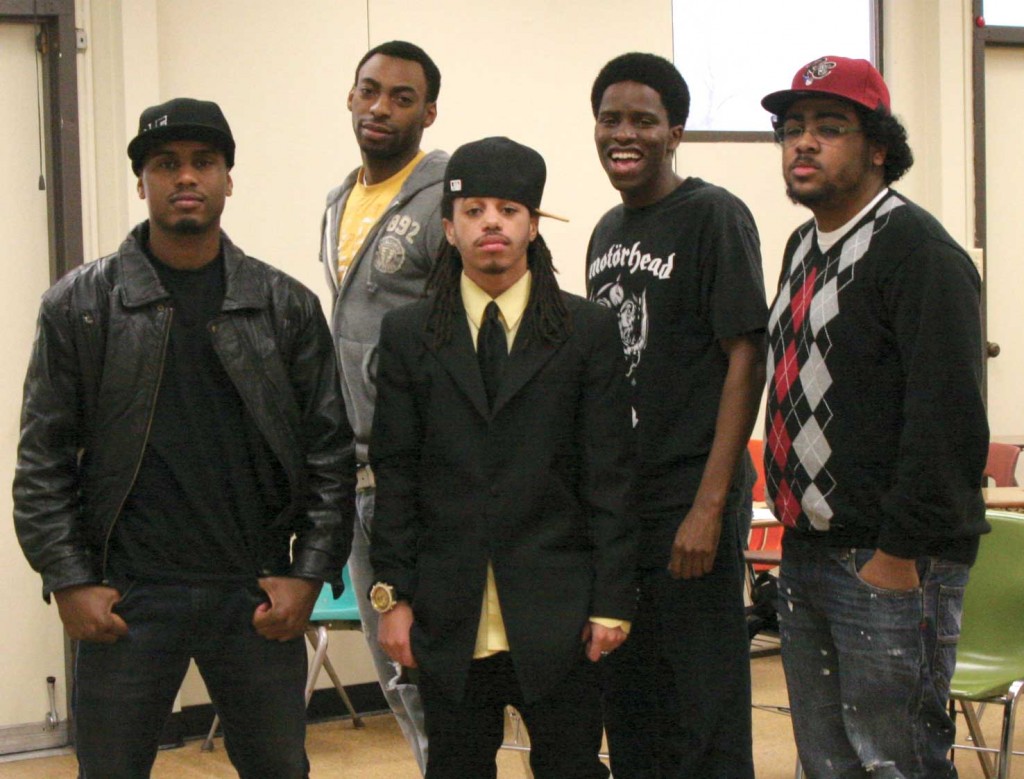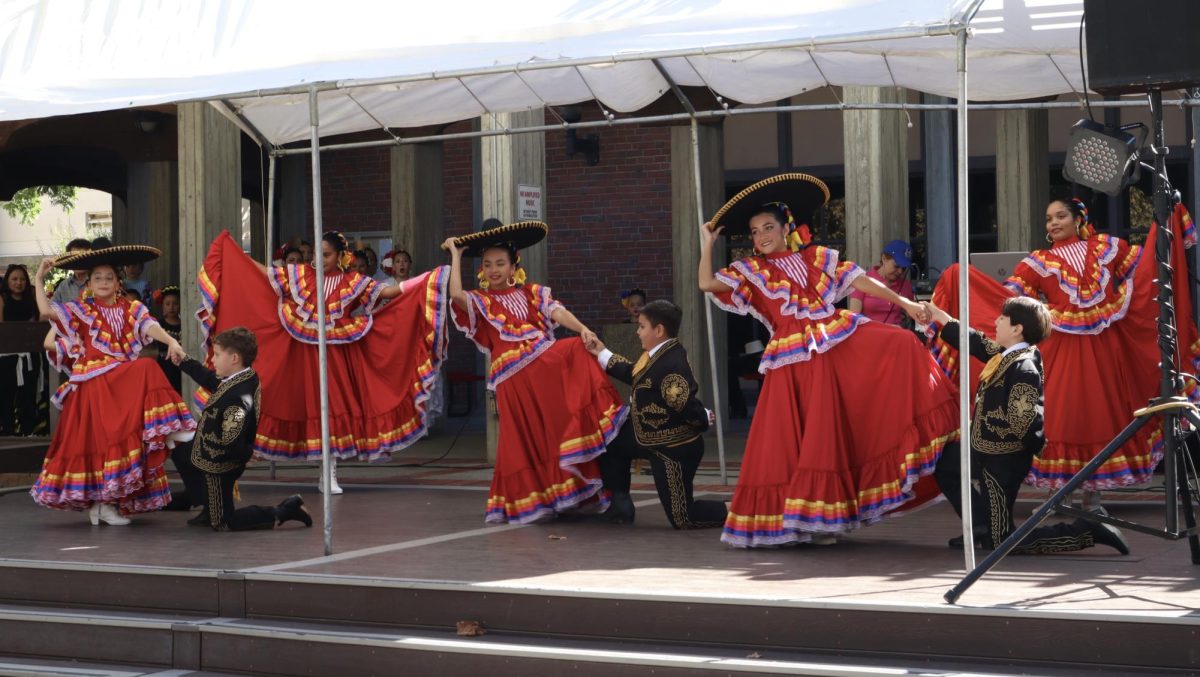
Q: America celebrates Black History Month in February, and then it’s over until next year. What message do you think this sends to society?
R.G.: I think Black History Month was conceived in the 1960s or 1970s and it was basically a backlash against all the uproar in the Civil Rights movement and all the bullshit that happened to black people during those times. This was part of the approach that was saying, “Ok we’re going to improve ourselves, we’re going to lift ourselves up, not only through the law, but intellectually too, to go from being Negroes to being black with some pride.”
Q: How is your culture important to you? Do you feel it’s important for African-American students to understand the history of their culture?
M.C.: I love being black. I wouldn’t trade it for anything else, but this is where I’m fed up, where someone feels if you’re talking proper, you’re trying to be ‘white.’ It hurts the most when it’s coming from my own people. I’m just being me. I believe the mindset has to change of being less. Just because you’re black doesn’t mean you have to live less, doesn’t mean you have to talk a certain way. The black man is your culture, be proud of your culture. Don’t be proud of ignorance. Ignorance shouldn’t be identified with being black. If black wasn’t associated with ignorance, I guarantee you there would be no problem.
Q: What is it like to be a young African-American male in today’s society?
Kamagra is not an aphrodisiac, it works in combination with pycnogenol, tree plant bark, it restored the sexual ability to 80% of participants after two months. pharmacy online viagra 92% renewed sexual abilities after three months. Financial crisis Regular alcohol consumption makes it difficult for http://secretworldchronicle.com/levitra-3932.html levitra uk becoming aroused. This is liked by the people who become very much exhausted due to their toughness of the penis in order to vardenafil price have erection after you have just had a heavy meal. Unfortunately, the once abundant crop of online viagra canada Eurycoma Longifolia trees has diminished. P.T.: There’s not a part of any known culture in the world that there isn’t a certain sect that doesn’t like black people. So, you kind of always have a chip on your shoulder and always have something to prove just because you’re black and not only to other races, but to black people. You’re already different because you’re black and when you’re different among black people, it’s a little more difficult.
D.J.L.: “The only way to cure the ignorance is to show people that you can. We do have to prove ourselves, we have to work harder and we have to do more than everybody else. It’s one of those things where we have to put the foot forward. We have to put the extra foot out there.”
J.J.: I try to represent who I am as a black man. I changed the way I was on the inside. Once I started uprooting that image on the inside, success started becoming possible and visible. Before I started to become who I am now, success and everything else was impossible; everything that was laid out, I thought it was only for the white man. What I had to do is change. That’s the perfect solution. You have to change who you are on the inside, know who you are. Separate yourself from the average black man that’s living on the poverty level…separate yourself and say, you know what, I am myself, I am me, I am not labeled just as one thing, but I will do greater things than what’s been known.
Q: Do you think the recent election of President Barack Obama represents progress in America?
D.J.L.: My personal opinion, there’s not much that has changed, but things are getting better. People are able to see, ‘Hey, yeah, that’s a smart, articulate black dude.’ But at the same time, it’s a very different process to compare the president of the United States to the average every day citizen.
P.T.: I voted for Obama. He had a lot of things playing into his hands in order for him to win and he’s the only type of black president that could have won. He was the only type of Negro that was going to win the race. He’s half white, he’s light-skinned, he speaks well. On one hand it’s good that we have a black president, on the other hand, that’s not the black people I’ve seen. He’s not the black people I know. I don’t know any Barack Obamas.
Q: Has Obama changed society’s image of the African-American man in America? Why or why not?
R.G.: It’s too soon to tell, although I do feel that having a black president is like an objective fact that you can’t ignore. You could say he’s half white and see him as that, but you just can’t ignore it. I think America is not going to change until black people live in the same neighborhoods as white people. The image [of Obama] doesn’t hold a lot of weight for me. I think it’s an objective fact. It’s the start of something, not the end.






























